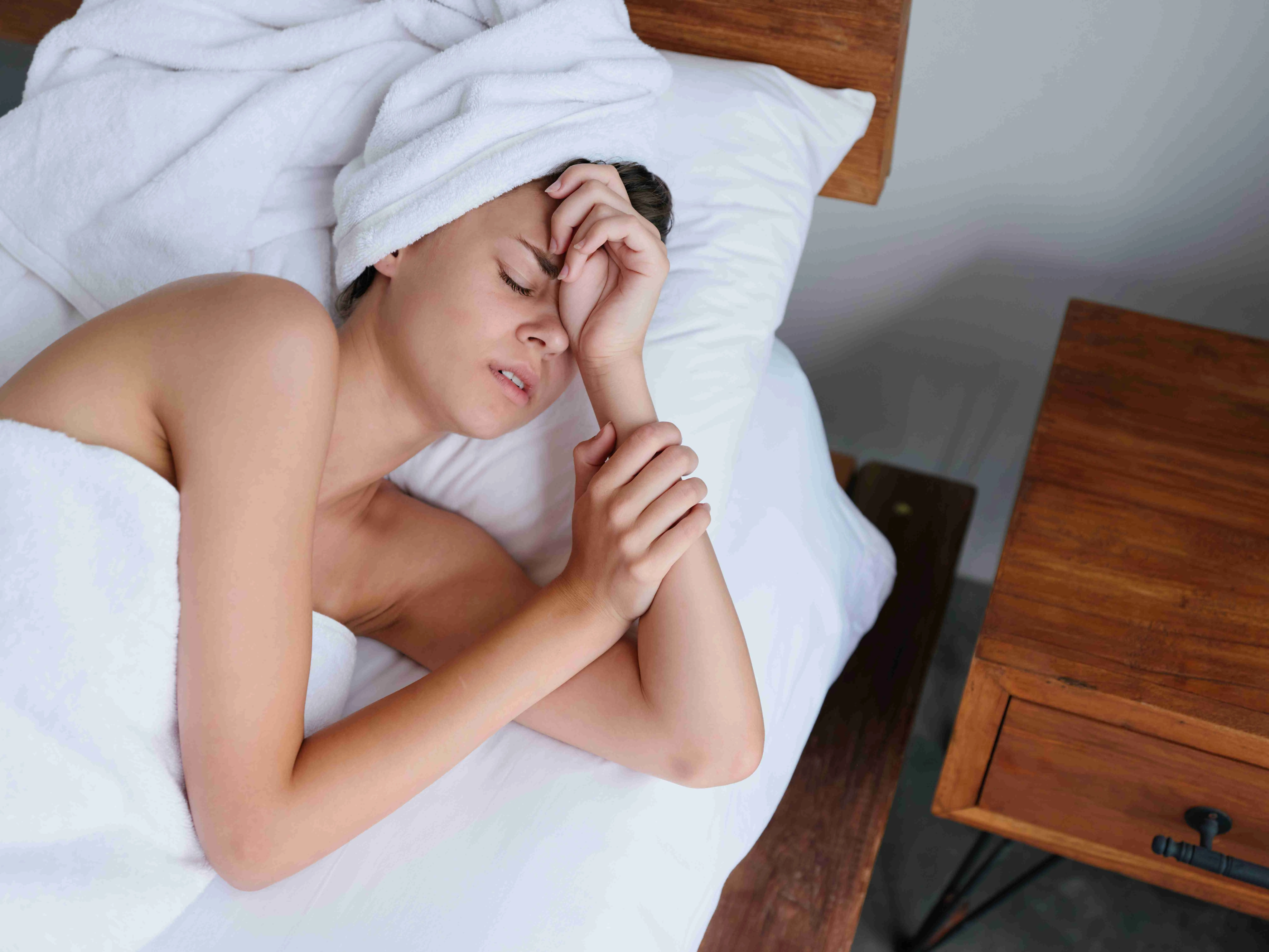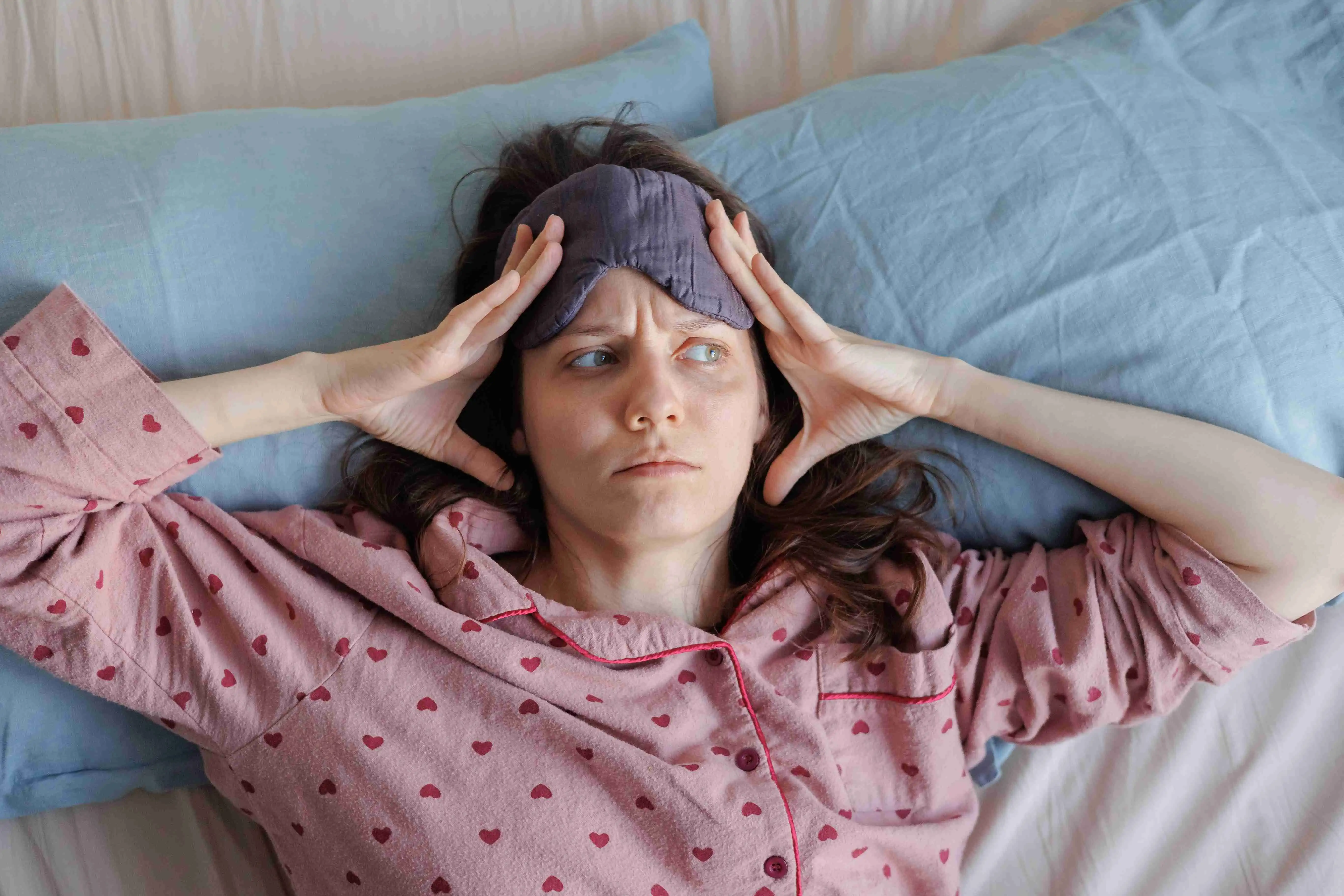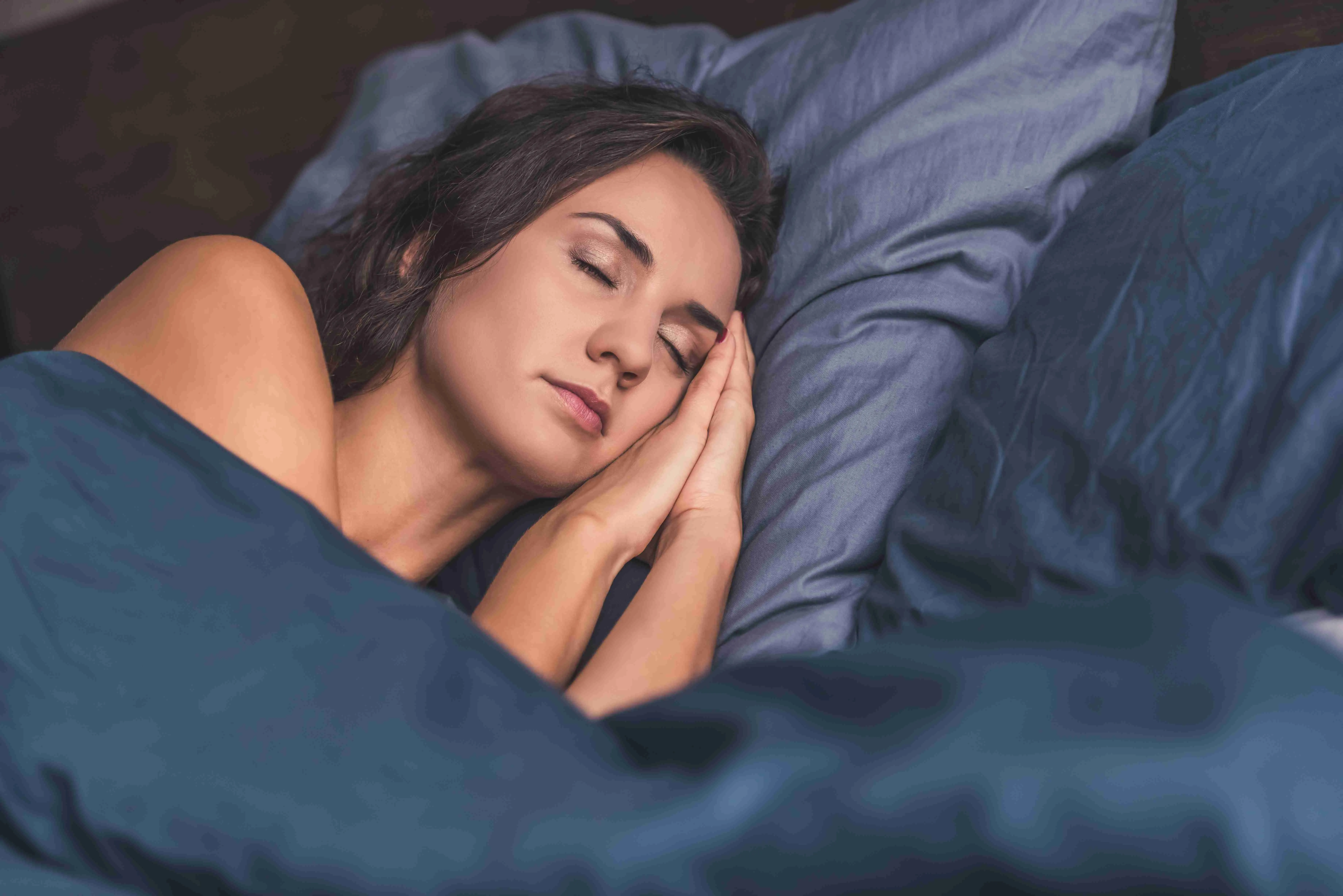People who have chronic pain experience daily challenges during their sleep due to the inability to obtain comfortable rest. They also face significant sleep deprivation, which worsens their overall health and establishes deep connections with sleep, greatly affecting both their quality of life and physical health.
This article examines how pain influences sleep patterns, examining various types of pain, their effects on different stages of sleep, the consequences of disrupted sleep, and common disorders linked to pain. It also discusses practical tips for improving sleep quality and managing pain to improve daily living and wellness.
Understanding Pain
Pain is an unfavorable sensation that impacts how both physical and emotional health functions. Assessing pain levels accurately is essential for effective management and tailored treatment plans.
Persistent pain begins as a warning system between the body and brain before progressing to a chronic status that requires ongoing treatment.
Understanding how pain impacts everyday life and overall health is important to enhance quality of life and to get an effective treatment.
Types of Pain
- Acute Pain: People with this type experience immediate pain from particular causes, including injuries and surgeries. This type of pain brings quick, intense sensations that briefly alert the body to potential harm.
- Chronic Pain: Chronic pain is distinct from acute pain because its origin is unclear and persists beyond medical recovery. Recognizing various pain symptoms is crucial for effectively diagnosing and managing chronic pain. Complex treatment methods are required to manage debilitating chronic pain, which lasts for extended periods that span weeks, months, or years.
- Neuropathic Pain: Neuropathic pain manifests as burning or shooting sensations that develop from nerve damage. Multiple medical conditions, including diabetes or herniated disc problems, lead to this type of pain. Neuropathic pain becomes particularly difficult to treat because typical pain management approaches show limited effectiveness. These pain conditions each require specific management strategies to effectively mitigate their impact on the patient's life.
Effects of Pain on the Body
There are many physical and emotional symptoms associated with chronic pain. Physically, it can limit mobility and restrict everyday activities, resulting in muscle weakness and decreased fitness. Pain can also affect an individual's mood and mental health emotionally, causing conditions such as anxiety and depression.
To address this pain comprehensively, it is essential to understand these impacts. Maintaining one's quality of life despite chronic pain challenges is achievable by managing symptoms as well as improving functional capabilities.
How Pain Affects Sleep Patterns

Pain greatly interferes with sleep by extending the time to fall asleep and can cause awakenings during the night, leading to significant sleep deprivation. These ongoing pain-related sleep disturbances reduce the quality of sleep and increase the feeling of pain.
Different pain conditions can have varying impacts on sleep architecture, requiring specialized approaches to manage sleep disturbances effectively.
- Increased Sleep Onset Latency: When experiencing pain, alertness rises, making it hard to relax and fall asleep. The result is prolonged periods of wakefulness at night, making it more difficult to fall asleep. As pain intensity increases, so does the difficulty in managing sleep quality effectively. Learn more about Sleep Latency.
- Reduced REM Sleep: As a result of pain, REM sleep is often disrupted, which plays a crucial role in the recovery of both emotional and cognitive functions. Reduced amounts of REM sleep adversely affect mood regulation and cognitive performance, leading to increased pain perception.
- Increased Nighttime Awakenings: Sleep disturbances are more likely to occur among individuals suffering from chronic pain. Sleep disruption prevents the body from reaching deep, restorative sleep, resulting in low sleep levels and increased pain sensitivity the following day.
Pain and Sleep Cycles
The sleep cycle recovers both body and mind, but the pain remains vulnerable to disrupting sleep patterns. Pain tends to disrupt different stages of sleep, which manage distinct aspects of human well-being.
Impact of Pain on Sleep Stages
Pain can disrupt every stage of the sleep cycle:
- Light Sleep (Stages 1 & 2): This stage is critical for physical recovery and immune system strengthening. Pain can shorten the duration of deep sleep, reducing its restorative effects.
- Deep Sleep (Stage 3): This stage is vital for physical recovery, such as muscle and tissue repair, and immune system strengthening. Pain can reduce deep sleep time, limiting its restorative benefits.
- REM Sleep: REM sleep, which helps with emotional processing and memory, is often disrupted by pain. This can affect mood.
Consequences of Interrupted Sleep
People with chronic pain face problems of disturbed sleep patterns and decreased sleep duration, which affect their physical and cognitive well-being.
Shortened sleep durations caused by chronic pain increase the difficulties people suffer from pain as it negatively affects their daily activities and their long-term health.
Several effects can arise when sleep is interrupted due to pain:
- Increased Sensitivity to Pain: Sleep deprivation can lower the pain threshold and cause the individual to become more sensitive to pain. It is generally due to less production of natural pain-killing hormones that occur during deeper levels of sleep.
- Cognitive Impairment: Sleep disturbances, specifically in REM sleep, can lead to decreased mental function, affecting memory, decision-making, and problem-solving skills. Learn more about Memory and Sleep.
- Mood Disorders: The inability to obtain restorative sleep can lead to emotional disturbance. Constant fatigue from disrupted sleep can lead to anxiety and depression.
- Physical Fatigue: Poor sleep reduces energy levels and affects physical health. This makes daily tasks feel more difficult and increases the sense of tiredness throughout the day.
Common Sleep Disorders Linked to Pain

Chronic pain frequently occurs alongside different sleep disorders, with each condition worsening the other.
- Sleep Apnea: Several individuals who experience chronic pain are unaware that they have this condition. Although pain doesn't directly cause sleep apnea, it can be exacerbated by things like altered breathing patterns, decreased mobility, and harmful medication responses. Sleep apnea not only disrupts sleep cycles but also impacts oxygen levels in the body, which can worsen inflammation and pain.
- Restless Legs Syndrome: The frequent link between restless legs syndrome and chronic pain makes it harder to get a good night's sleep. It causes your legs to ache, crawl, or tingle all the time, making you desire to move more frequently than normal. These sensations tend to worsen during the night, making it harder to fall asleep and stay asleep. This ongoing sleep disruption may worsen your pain sensitivity and your overall discomfort, creating a challenging cycle that will affect sleep and everyday health. These sleep problems significantly complicate pain management and require integrated therapeutic approaches.
- Insomnia: One of the most common sleep disorders among people with chronic pain is insomnia, which often begins when pain makes it difficult to find a comfortable sleeping position, resulting in long hours of tossing and turning, and even when sleep does come, it is often light and fragmented, leaving people feeling unrested. Unfortunately, this lack of quality sleep exacerbates pain perception, creating a vicious cycle where pain disrupts sleep, and poor sleep increases pain sensitivity. Therapeutic strategies like sleep restriction, which limits time in bed to specific periods, can help recalibrate the sleep-wake cycle in those suffering from insomnia due to chronic pain.
- Narcolepsy: Despite not being as frequently linked to chronic pain as the other conditions, narcolepsy can nonetheless make managing pain more difficult. Narcolepsy causes excessive daytime drowsiness and disturbed nighttime sleep by interfering with the body's regular sleep-wake cycle. Insufficient sleep habits might eventually lower the pain threshold, making minor suffering seem more severe.
Psychological Impact on Sleep
Pain and poor sleep can have a significant psychological impact, influencing emotional health and everyday functioning. Different pain conditions, such as chronic headaches, arthritis, and fibromyalgia, not only affect physical health but also have profound emotional and psychological repercussions.
It is crucial to examine the mental health issues that arise and to identify coping strategies for these challenges.
Mental Health Complications
Chronic pain along with continuous sleep deprivation can greatly affect mental health. Ongoing discomfort raises stress levels, increases anxiety, and can lead to depression over time.
Insufficient sleep further disrupts emotional regulation and cognitive abilities, making it more challenging to handle stress and respond to everyday difficulties.
When pain and sleep issues continue, they tend to exacerbate each other, making it even harder to deal with emotional distress. This cycle creates a complicated problem that impacts both physical and mental well-being, necessitating a thorough approach to treatment and management.
Psychological Coping Strategies
Effectively managing the psychological effects of pain and sleep disturbances requires a comprehensive approach. Several evidence-based strategies can enhance mental resilience and overall well-being.
- Cognitive Behavioral Therapy for Insomnia (CBT-I): CBT-I is structured therapy that aims to tackle both the thought patterns and behaviors that lead to ongoing sleep challenges. The inability to prepare for or maintain sleep because of chronic pain leads to increasing frustration that makes sleeping problems even worse. CBT-I works on changing negative beliefs about sleep, establishing healthy bedtime habits, and teaching relaxation techniques to decrease sleep-related anxiety. As sleep quality improves, the body's capacity to manage and tolerate pain also increases.
- Relaxation Techniques: Effectively managing stress can greatly affect how the body experiences pain. Techniques such as deep breathing exercises, progressive muscle relaxation, and guided imagery can help alleviate tension, lower stress levels, and promote a sense of calm. Regular practice of these techniques helps people decrease the pain impact on sleep quality while creating better nighttime relaxation.
- Support Network: To manage chronic pain and sleep problems, emotional and social support is crucial. Maintaining relationships with your family, friends, or support groups may offer important guidance and motivation. Engaging in discussions with others who have similar experiences can be comforting and provide valuable insights into various coping strategies.
Addressing the psychological dimensions of pain and sleep is essential for breaking the cycle of discomfort and fatigue. A blend of therapy, relaxation techniques, social support, and, when needed, doctor-prescribed sleep medicine can greatly enhance overall well-being.
Customizing these strategies to fit an individual’s needs ensures a more effective and sustainable method for managing pain and sleep disturbances.
How to Improve Sleep When Dealing with Pain

Dealing with pain while trying to get a good night’s sleep can be challenging, but it is possible with the right strategies.
By implementing effective techniques and making some thoughtful changes, you can improve sleep quality and reduce discomfort, leading to more restful nights and an overall better well-being.
Best Sleeping Positions for Pain Relief
Finding the right sleeping position can greatly influence your pain management. Ensuring proper alignment and support can help decrease discomfort and improve the quality of your sleep.
- Back Pain: Lying on your back is widely recommended as a pain-relief posture for individuals experiencing back pain. To reach maximum benefits from back-lying positioning, you should place a pillow under your knees. Placing the pillow under your knees creates a back curvature support system which decreases lumbar region stress while providing pain relief.
- Neck Pain: You should choose a back-sleeping position with a cervical pillow when your neck pain exists. The pillow supports neck curvature while maintaining spinal alignment in its proper shape. The correct alignment between the cervical pillow and neck stops uncomfortable neck bends which reduces strain to ensure a pain-free rest. Learn more about How to Choose the Best Sleeping Position for Neck Pain.
- Arthritis Pain: For individuals experiencing joint pain, particularly in the hips and knees, sleeping on your side with a pillow between your knees can alleviate pressure in those regions. It's important to have a mattress that offers firm yet comfortable support to maintain proper alignment without causing you to sink. Check out our list of the Best Mattresses for Joint Pain.
- Fibromyalgia: Conditions that lead to overall body pain might necessitate a mix of sleeping positions. Many individuals find relief by lying on their side with additional cushioning around sensitive spots or by sleeping on their back with adequate pillow support to alleviate discomfort. Check out our list of the Best Mattresses for Fibromyalgia.
- Scoliosis: Sleeping on your side with a supportive pillow between your knees can relieve pressure on your spine. Choosing a mattress that conforms to your body and having a pillow that keeps your spine aligned can also reduce back strain.
- Migraines and Headaches: Being in a quiet, dim space can help reduce headache triggers. Lying on your back with a pillow under your neck may ease tension, and some people find that propping their heads up can prevent pressure from building up.
Adjusting your sleeping positions and selecting the right pillow and mattress support can greatly improve your sleep quality and reduce pain-related interruptions. It might take some time to find what works best for you. Incorporating targeted sleep interventions can significantly alleviate these challenges.
Creating a Supportive Sleep Environment
Improving sleep quality, especially for those dealing with chronic pain, requires establishing a suitable sleeping environment. By making small changes to the mattress, the surroundings, and the overall arrangement, one can greatly enhance the quality of sleep.
- Choosing the Right Mattress: Selecting a supportive yet comfortable mattress improves body strain reduction. Memory foam along with adjustable-firmness features acts as a pressure point cushion that maintains spinal alignment. Supporting mattresses should have the right balance between softness and firmness to stop nighttime discomfort from increasing.
- Setting Up a Conducive Sleeping Area: Several external disturbances can interrupt restful sleep but reducing them remains essential for proper sleep. Having blackout curtains serves to block out unnecessary outdoor lighting. Also, earplugs or white noise machines help reduce disruptive sounds. Sleep quality improves through lower temperatures and results in deeper periods of restful sleep.
- Appropriate Bedding: Choose sheets and pillowcases made from breathable, natural materials that support body comfort and help control body temperature. To relieve pressure on sensitive spots, lightweight non-restrictive blankets can help you obtain better rest during the night.
- Environmental Control: Better breathing and relaxation occur in a clean ventilated environment. Air purifiers eliminate irritants while humidifiers maintain balanced moisture levels to stop dryness which benefits those with sensitive skin or respiratory conditions.
Applying those strategies helps people experiencing pain create environments that promote deep restful sleep. Having a comfortable and organized sleeping space can improve overall well-being.
Building Healthy Sleep Habits
Establishing and maintaining good sleep habits can greatly enhance sleep quality, particularly for those dealing with pain or sleep issues. Making simple changes to daily routines can encourage more restful and uninterrupted sleep.
- Maintaining a Consistent Sleep Schedule: Going to bed and waking up at the same time every day helps regulate the body’s internal clock. A consistent sleep routine can boost sleep efficiency and make it easier to fall asleep and wake up feeling refreshed. Incorporating sleep restriction techniques can also help enforce a more regular sleep pattern and reduce wakefulness during the night. This strategy is especially beneficial for those whose sleep disturbances are exacerbated by chronic pain.
- Avoiding Caffeine and Electronics Before Bed: Caffeine and other stimulants can make it difficult for your body to relax, so it is wise to avoid them for a few hours before bedtime. Using smart devices can disrupt melatonin production, making it harder to relax. Taking a break from screens at least an hour before bedtime helps your mind shift into a more peaceful state. Learn more about How Long Does Caffeine Keep You Awake and How Electronics Affect Sleep.
- Relaxing Evening Routines: Engaging in soothing activities before bedtime can indicate to your body that it’s time to wind down. Performing relaxing activities such as reading books, having a warm bath, or listening to soft music will ease tension levels and achieve natural sleep more easily.
People who follow healthy sleep habits create organized sleep schedules and experience both improved rest and greater life satisfaction.
Diet and Exercise Recommendations
Our daily activities, such as our diet and physical activity levels, play an important role in how we manage pain and the quality of our sleep. By making thoughtful choices in these areas, we can enhance our overall satisfaction and health.
- Anti-inflammatory foods: Our daily activities, such as our diet and physical activity levels, play an important role in how we manage pain and the quality of our sleep. By making thoughtful choices in these areas, we can enhance our overall satisfaction and health.
- Gentle exercises for pain sufferers: Participating in low-impact exercises can strengthen muscles, enhance flexibility, and alleviate stiffness without putting excessive strain on the body. Swimming, yoga, and light stretching activities ease the discomfort of people who suffer from chronic pain while still promoting physical movement. Learn more about Physical Activities.
- Hydration: Hydration maintains joint fluid which delivers lubrication between joints and reduces the chance of muscle cramps. Drinking enough water throughout the day helps improve movement while minimizing body strain particularly when you need to manage pain.
- Sleep-Promoting Foods: Sleep quality improves through nutrients that help muscles relax including magnesium and potassium. The essential minerals found in bananas, sweet potatoes, almonds, and avocados may lead to more restful nights.
These dietary approaches combined with regular movement will help people deal with pain while also improving their sleep quality. Persistent small adjustments lead to extended benefits which improve overall comfort and health.
Practicing good sleep hygiene is essential for anyone looking to improve their sleep quality in the face of chronic pain.
FAQs
How does pain affect sleep?
People dealing with pain frequently find it hard to fall asleep and often wake up several times during the night, leading to significant sleep deprivation. This interruption affects the REM sleep stages, which are crucial for recovery. As a result, the cycle of inadequate sleep and increased pain sensitivity intensifies.
Can you feel physical pain while sleeping?
Yes, physical discomfort can interfere with the quality of sleep and last throughout the night. Even if you are not fully aware of the pain, it can interrupt your sleep, stopping you from getting the deeper phases of healing and resulting in non-restorative sleep.
How can you fall asleep while in pain?
Enhancing sleep while dealing with pain requires maintaining a consistent sleep routine and creating a cozy sleeping environment. Incorporating relaxation methods, CBT-I, and potentially using medications recommended by a healthcare professional can assist in managing pain during the night.
Why does pain intensify at night?
Pain often feels more intense at night due to physiological changes such as decreased anti-inflammatory hormones and fewer distractions, making it harder to divert attention from the pain.
Conclusion
Addressing both pain and sleep simultaneously offers a more comprehensive approach to health. Simple adjustments made frequently to your daily routine produce substantial improvements in sleep quality and pain treatment along with better general wellness.
The article highlighted important strategies, including changing sleep positions, creating a comfortable sleep environment, and adopting healthy daily practices. By regularly implementing these strategies and making thoughtful changes in their habits, individuals can enjoy more restful nights and reduce discomfort during the day, ultimately enhancing their overall quality of life.
Karen Barnard
Karen is a Human Movement Science expert and a certified sports nutrition and massage therapist. At Sleepiverse, she combines her passion for human movement science and sleep health to educate herself and her readers about healthier sleep. In addition to writing articles, Karen manages a fitness studio offering private training, athletic conditioning, and sports massage therapy. She focuses on providing people with a holistic environment for people to reach their health goals, often incorporating stretch therapy to promote mental tranquillity and help people improve their sleep.


